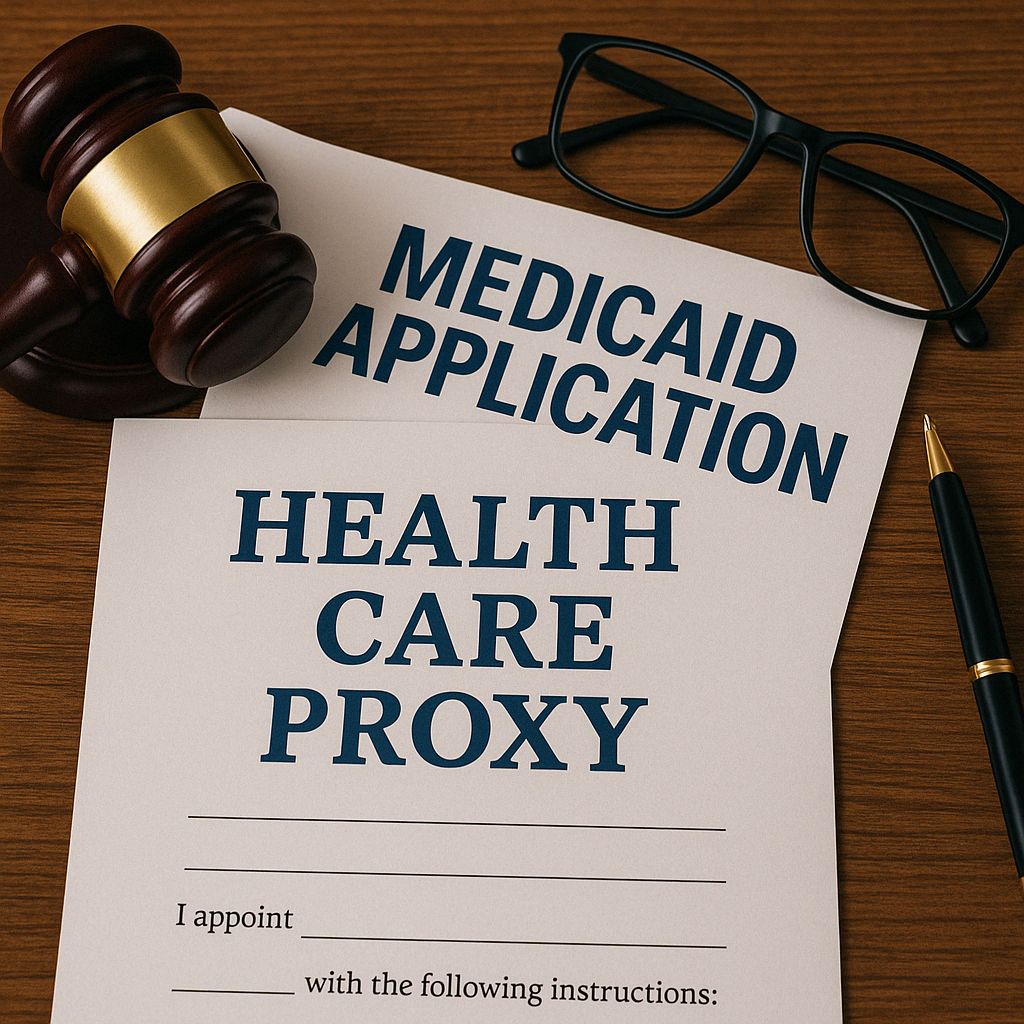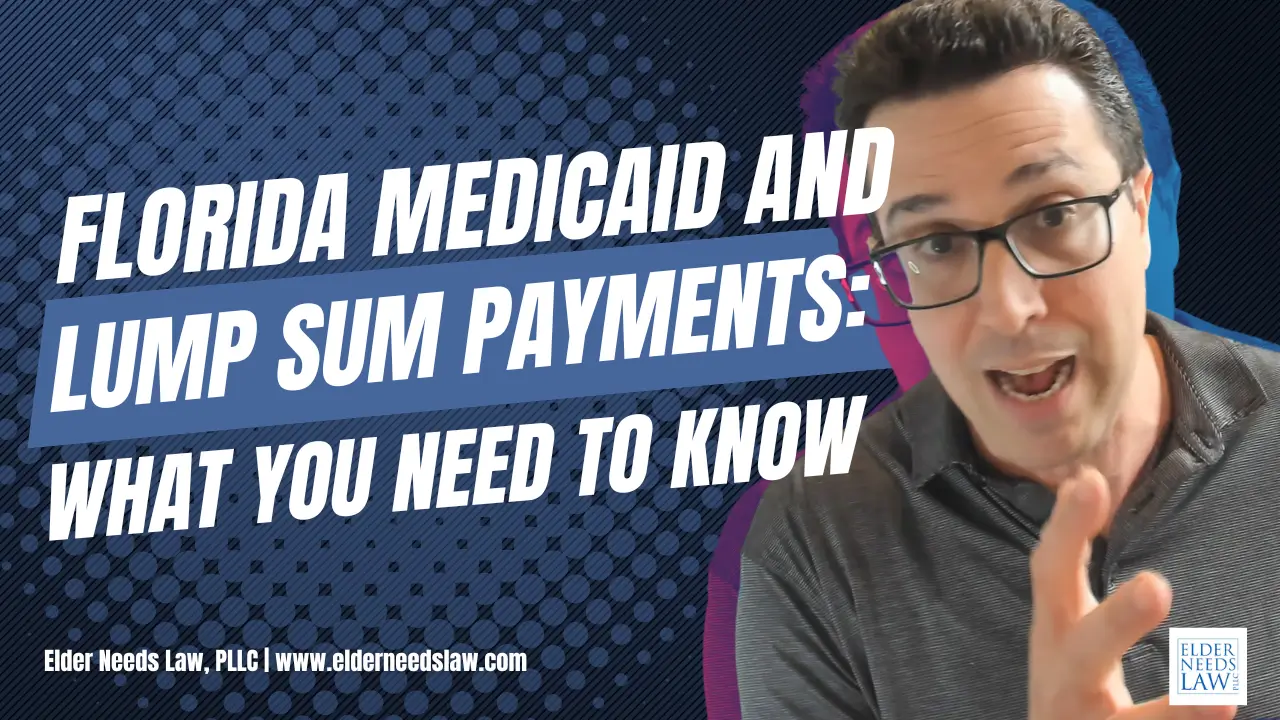Florida Medicaid Application: Guardianship Not Always Required Thanks to Health Care Proxy Law

For families of incapacitated individuals in Florida, the process of obtaining Medicaid benefits to help pay for long-term care can seem overwhelming—especially when their loved one has not executed key legal planning documents such as a medicaid compliant durable power of attorney or health care surrogate designation. In these situations, many assume that their only option is to pursue legal guardianship through the court system, which is costly, time-consuming, and emotionally burdensome.
However, Florida law provides an alternative path that is often overlooked: the use of a health care proxy.
What Is a Health Care Proxy?
Under Florida Statutes § 765.401, a health care proxy is a person who is legally authorized to make health care decisions for an individual who has become incapacitated and did not execute an advance directive, such as a designation of health care surrogate or living will. A proxy can also step in if the designated surrogate (or their alternate) is unable or unwilling to serve.
In short, a health care proxy exists to fill the decision-making void when no formal planning has been done.
Who Can Serve as a Health Care Proxy?
Florida law establishes a clear order of priority for who may serve as a proxy in F.S. 765.401. This hierarchy ensures that someone close to the individual can act in their best interest, even in the absence of formal legal documents. The order of priority is as follows:
- A legally appointed guardian (if one exists)
- The patient’s spouse
- An adult child (if multiple adult children, then a majority who are reasonably available must agree)
- A parent
- An adult sibling (again, majority rules if more than one)
- An adult relative who has demonstrated special care and concern, and maintained regular contact
- A close friend
- A licensed clinical social worker not employed by the facility
It’s important to note that the statute contemplates real-world situations—recognizing that loving family members, friends, or caregivers often step in to help when someone becomes incapacitated.
What Can't a Health Care Proxy Do?
First, its important to note that a health care proxy has limited powers and does not have the ability to do many things.
For example, a health care proxy is not empowered to create trusts (such as an income trust if needed for Medicaid eligibility). Nor does a health care proxy have the ability to access a Medicaid-applicant's funds to pay bills or to implement any other Medicaid-planning strategies.
A legal guardianship might be needed for these activities and more.
What Can a Health Care Proxy Do?
A health care proxy has the authority to make “health care decisions,” which are broadly defined in Florida Statutes § 765.101(6). This definition includes more than just consenting to medical treatment. It also encompasses:
- The authority to provide or withhold informed consent for medical procedures or treatments
- The ability to access the incapacitated person’s medical information
- The authority to withdraw life-sustaining treatment, if appropriate
- The ability to make anatomical gift decisions
Critically, and most relevant to the Medicaid planning context, the definition of a health care decision includes the authority to apply for public or private benefits to help pay for health care. This includes Medicaid, Veterans benefits, and other governmental programs.
Specifically, § 765.101(6)(b), Florida Statutes, states that a health care decision includes:
"the decision to apply for private, public, government, or veterans’ benefits to defray the cost of health care."
This statutory authority means that a health care proxy can apply for Florida Medicaid long-term care benefits on behalf of an incapacitated loved one—even without guardianship and even without a durable power of attorney.
Why This Matters
This provision in Florida law is incredibly significant for families seeking Medicaid benefits for a loved one in a nursing home, assisted living facility, or receiving care at home. Legal guardianship can cost thousands of dollars in attorney’s fees, court filing fees, and professional evaluations. The process often takes months, during which time Medicaid benefits may be delayed, causing financial hardship.
If a family member, friend, or caregiver qualifies as a health care proxy under the statute, they may be able to immediately begin the Medicaid application process, without the need to petition the court for guardianship.
Conclusion: Guardianship Is Not Always Required
While legal guardianship remains necessary in some cases—especially when there are disputes among family members, no suitable proxy exists, or financial decisions must be made—it is not automatically required for Medicaid application purposes. Florida’s health care proxy statute offers a compassionate and practical alternative for families who are simply trying to help a loved one receive the care they need.
By understanding the scope of a proxy’s legal authority, especially the power to apply for benefits, families can avoid unnecessary court proceedings and focus instead on ensuring their loved one receives proper care and financial assistance.
However, when possible, it would be smart to avoid over-relying on this concept. It is always better to have solid well-drafted incapacity and estate planning documents to make your wishes clear.
If you're facing this situation, consult with an elder law attorney familiar with Medicaid planning. They can help determine whether a health care proxy is sufficient in your case—and potentially save your family time, money, and stress.







